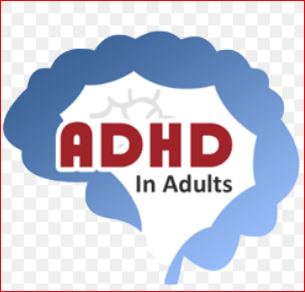

Harold Robert Meyer and The ADD Resource Center 03/13/2025
Generative AI offers promising tools and approaches to help individuals with ADHD manage their symptoms, enhance productivity, and improve their quality of life. This article explores practical applications of generative AI for ADHD support, from organizational assistance to personalized learning and emotional regulation.
For the millions of people living with ADHD, generative AI represents a significant technological advancement that can be customized to tackle specific challenges related to executive function. As these technologies become increasingly sophisticated and accessible, they provide unprecedented support for managing ADHD, going beyond traditional interventions.
Generative AI can function as a highly effective personal assistant, helping to compensate for executive function difficulties common in ADHD. AI tools can:
AI assistants can detect patterns in your work habits to suggest optimal times for focused work, breaks, and transitions between activities—all common pain points for those with ADHD.
The flexibility of generative AI makes it particularly valuable for ADHD learning support:
AI can track your learning progress, identifying concepts that require reinforcement and adjusting explanations based on your demonstrated understanding.
Generative AI can create environments and tools specifically designed to support sustained attention:
These tools can learn from your interaction patterns to predict when focus is waning and proactively suggest interventions before distraction takes hold.
ADHD often involves emotional regulation challenges that AI can help address:
AI systems can recognize shifts in communication patterns that might indicate emotional dysregulation and offer appropriate coping strategies.
Working memory limitations in ADHD can be significantly supported by AI:
These systems essentially function as an external working memory, reducing the cognitive load required to maintain and retrieve information.
Many with ADHD have strengths in divergent thinking that AI can help harness:
AI can serve as both a sounding board and a organizing framework for the often abundant but scattered creative energy associated with ADHD.
ADHD can sometimes impact social communication, an area where AI offers discreet assistance:
These supports can reduce the cognitive load of social interactions while helping develop communication skills over time.
Generative AI can support more effective treatment approaches:
AI systems can help identify patterns that might not be apparent to either you or your healthcare providers, potentially leading to more personalized treatment approaches.
As generative AI continues to evolve, we can expect:
The combination of neuroscience research and advanced AI models promises increasingly sophisticated support tailored to the unique cognitive profile of ADHD.
Disclaimer: Our content is intended solely for educational and informational purposes and should not be considered a substitute for professional advice. While we strive
for accuracy, we cannot guarantee that errors or omissions are absent. Our content may use artificial intelligence tools, producing inaccurate or incomplete information. Users are encouraged to verify all information independently.
© Copyright 2025 The ADD Resource Center. All rights reserved. No part of this publication may be reproduced, distributed, or transmitted in any form or by any means without obtaining prior written permission from the publisher and/or the author.
ADD Resource Center: Your Partner in Understanding and Growth
Your journey toward enhanced understanding and support begins here.
The ADD Resource Center has established a vibrant community of learners, professionals, and advocates committed to fostering positive change through evidence-based approaches and compassionate support.
Our Comprehensive Services
We offer personalized guidance for individuals, families, and organizations through integrated support systems tailored to their unique needs. Our expert team provides targeted behavioral intervention strategies and delivers specialized assistance to healthcare providers, educators, and industry professionals.
Evidence-Based Resources Within Reach
Access our carefully curated collection of informative articles, participate in transformative workshops and seminars, and engage with our advocacy initiatives to promote understanding and reduce stigma.
Our resources are continually updated to reflect the latest research and best practices.
Take the First Step Today
Join our expanding community and discover the impactful difference that expert guidance and support can make in your journey.
Join our Mailing List to stay updated on our latest resources and events.
Disclaimer: Our content is intended solely for educational and informational purposes and should not be considered a substitute for professional advice. While we strive for accuracy, we cannot guarantee that errors or omissions are absent. Our content may use artificial intelligence tools, producing inaccurate or incomplete information. Users are encouraged to verify all information independently.
Harold Robert Meyer and The ADD Resource Center 03/30/2025 Executive Summary Everyone experiences those days when…
Understanding the intersection between porn addiction and ADHD is crucial for those struggling with these…
The government-to-private sector transition affects thousands of professionals annually, with recent initiatives from the Department…
As digital therapeutics (DTx) gain traction in the management of attention-deficit/hyperactivity disorder (ADHD), they offer…
Harold Robert Meyer and The ADD Resource Center 04/01/2025 Your last update: / /202x Personal Information □…
This ADHD intervention was a short-term, structured, self-guided intervention that participants accessed via the internet.…